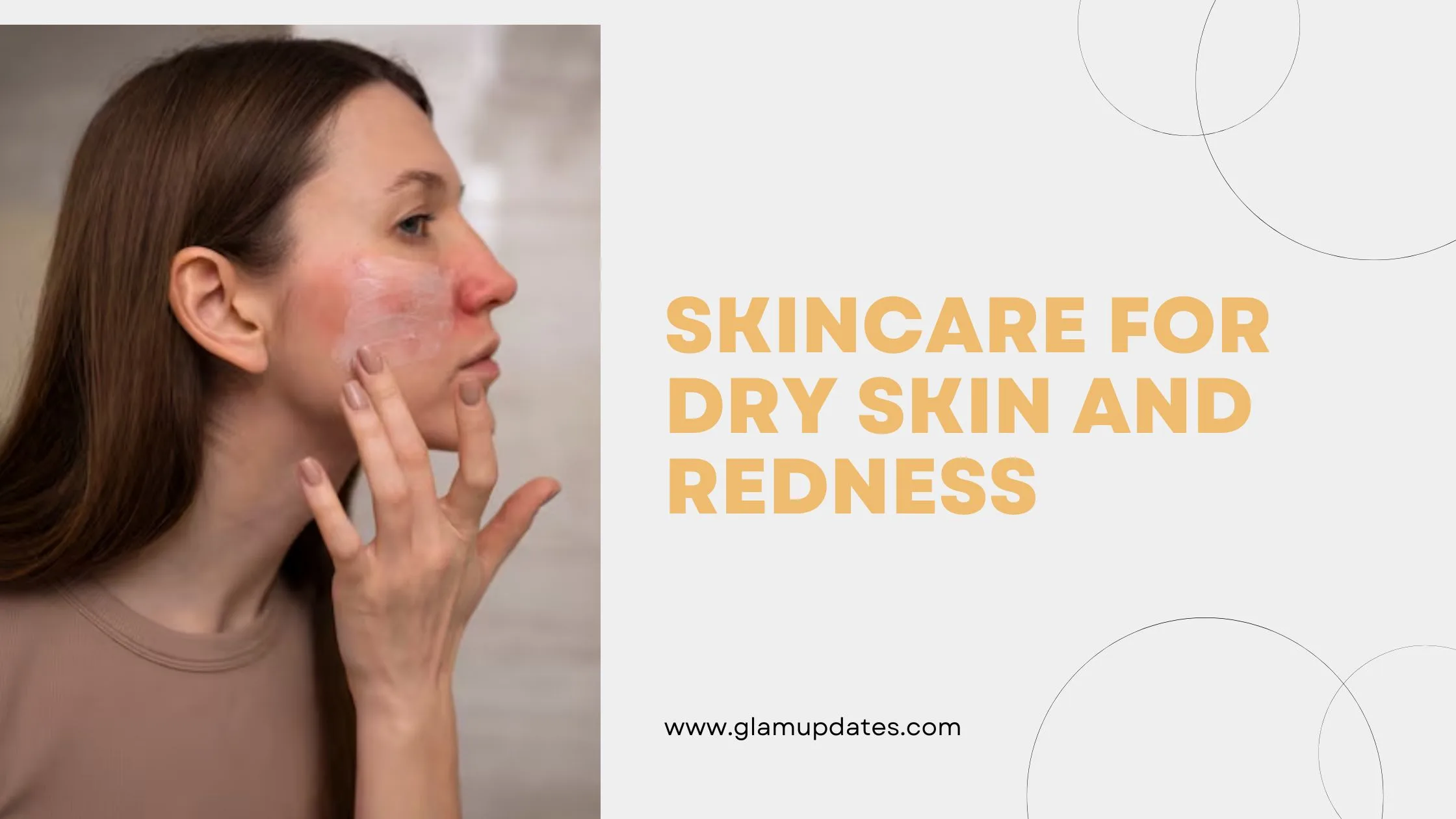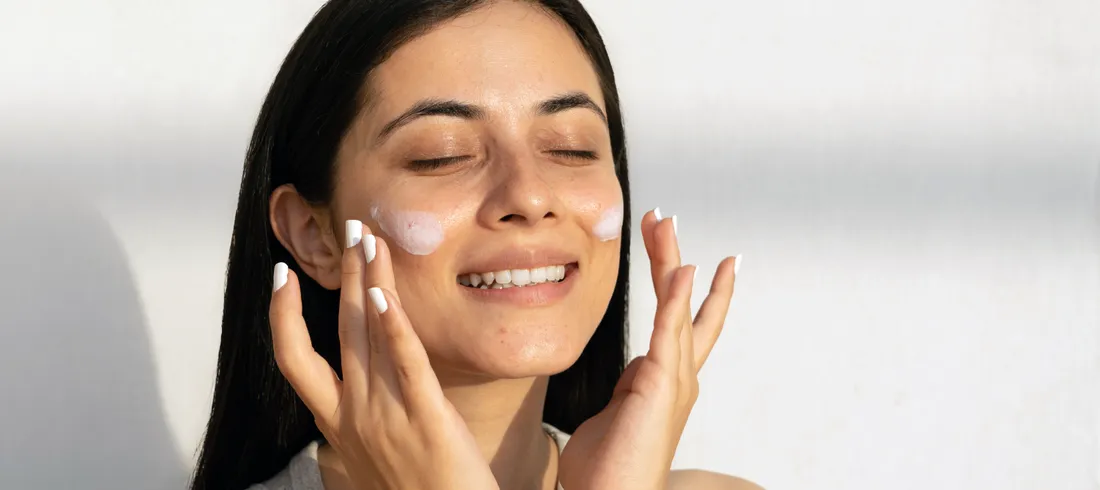Stress Management For Healthier Skin
Although stress is unavoidable in today's world, it can have a bigger effect on your skin than you may think. The effects of stress on your skin can range from causing outbreaks of acne to making chronic disorders like psoriasis and eczema worse. Stress management for healthier skin this post will examine the connection between stress and skin health and offer helpful advice on how to reduce stress to enhance skin health. Common stress-related skin conditions, practical stress-reduction strategies, and available expert treatments will all be covered. Learn how to deal with stress head-on to have better skin by reading on.
Stress Management For Healthier Skin
Identifying Stress and How It Affects Skin Health
Your intellect is not the only thing impacted by stress. It also has a noticeable effect on the condition of your skin. Your body releases stress hormones like cortisol when you're under stress. Acne and other skin conditions may result from these hormones' ability to trigger your skin glands to produce more oil.
Read also: Unlock Your Glow: The Essential Skincare Routine for Dry Skin
Typical Effects of Stress on the Skin
- High Oil Production: Stress hormones have the potential to increase the amount of oil produced by the skin, clogging pores and causing flare-ups of acne.
- Swelling: Skin disorders like psoriasis and eczema that are inflammatory can be brought on by stress or made worse by it.
- Damaged Skin Barrier: Excessive stress can impair the function of your skin's barrier, which makes it more difficult for your skin to hold onto moisture and fend off dangerous chemicals.
- Quick Aging: Prolonged stress accelerates the aging of cells, causing fine lines and wrinkles to emerge earlier.
The connections in science
Studies have shown that stress can aggravate existing skin issues and cause new ones to develop. Stress is closely connected to inflammatory skin diseases. Understanding the link between stress and skin health is vital. It encourages you to take proactive efforts to control stress and, subsequently, your skin condition. For individuals seeking expert guidance and treatments, Dr. Janet Vafaie offers specialist assistance to manage stress-related skin disorders.
Common skin problems linked to stress
Stress may induce many skin conditions, so knowing what you could be dealing with is vital. Here are some of the most prevalent stress-related skin problems:
Acne
Stress causes your skin to produce more oil, which may cause or worsen acne. Excessive oil production can lead to clogged pores and acne-like lesions.
Eczema
Eczema flare-ups brought on by stress might worsen the condition. High amounts of stress may cause inflammation, redness, and itching.For further information on how to treat eczema, see our eczema stress management ideas.
Psoriasis
Another ailment that stress may make worse is psoriasis. During stressful situations, its inflammation and rapid skin cell turnover may worsen. Visit our treatment page to learn more about psoriasis and stress.
Rosacea
Stress can exacerbate rosacea symptoms, such as redness in the face and visible blood vessels. Controlling flare-ups can be greatly aided by effective stress management.
Early Aging
Excessive stress hastens the aging process. Signs like wrinkles, fine lines, and a lifeless complexion may show up earlier than they otherwise would. To learn more, check out our premature aging services. Both skincare and stress-reduction strategies are necessary for the prevention and cure of certain skin conditions. To develop a unique regimen, it is usually better to speak with a dermatologist.
Realizing the Effect
It is often known that stress has a detrimental impact on skin health. The American Academy of Dermatology states that stress can exacerbate a number of skin disorders by inducing an inflammatory reaction in the body. Your skin's health can be greatly enhanced by managing stress and receiving expert care for these problems. To assist you in striking this balance, Dr. Janet Vafaie provides specialist services.
Read also: Skincare for Oily Skin: Tips and Tricks
How Acne Is Caused by Stress
Stress may have a major effect on acne, a common skin condition. Hormonal changes brought on by stress are the main cause of the link between stress and acne.
Cortisol's Function
Your body releases the stress hormone cortisol while you're under stress. The sebaceous glands in your skin produce more oil when cortisol levels are high. Acne may arise from clogged pores caused by this much oil.
Aspects of Behavior
Stress impacts your actions in addition to your hormones. When under stress, people often:
- More Touches to Their Face: Breakouts are caused by a rise in the shift of germs to the skin.
- Cut Back on Skincare: Stress can cause people to ignore their daily skincare regimens, which exacerbates acne.
- Poor Food Choices: Stress frequently results in bad dietary habits, such as eating more oily or sugary meals, which can aggravate acne.
Scientific Views
The link between stress and acne has been shown by research. According to Stanford University research, students' acne was worse during test season—a time of high stress—than during less stressful times.
Treating Stress-Related Acne

Acne handling can be done by managing stress. The following are some tactics:
- Daily Skincare Routine: Adhere to a regular regimen that involves acne treatment, moisturizing, and washing.
- Balanced Diet: Steer clear of junk food and consume a diet rich in fruits, vegetables, and whole grains.
- Seek Medical For help: See a dermatologist if your acne doesn't go away. More information about how we can assist with acne treatment is available on our treatment page.
Extra Resources (Stress Management For Healthier Skin)
See the American Psychological Association's entry on the effects of stress on the body for further details on how stress impacts your skin and how to deal with it. Knowing how stress and acne are related will help you better control both. Skin doctors like Dr. Janet Vafaie can offer specific remedies for acne brought on by stress.
Handling Stress-Related Eczema
The chronic skin disorder eczema is typified by irritated, itchy areas. Effective stress management is crucial for those with eczema since stress may greatly worsen its symptoms.
Why Eczema Is Made Worse by Stress
The body's immune system may become overactive while under stress. Patients with eczema frequently have flare-ups as a result of inflammation brought on by this hyper-reactive immunity condition. Also, stress can impair the function of the skin's barrier, which facilitates the entry of allergens and irritants and exacerbates eczema.
Successful ways to treat eczema
- Regular Hydrating: Having skin moisture is essential. To improve your skin's barrier and hydrate it, use a heavy moisturizer without any scent.
- Avoid Events: Know and stay away from anything that is known to cause eczema, such as particular foods, textiles, or surroundings.
- Stress Reduction Methods: Include relaxation methods in your everyday practice, such as yoga, meditation, and deep breathing exercises.
Expert Assistance for Eczema

See a dermatologist if self-treatments are not enough. Dr. Janet Vafaie specializes in treating eczema with customized care.
Extra Information
Reducing stress can directly lead to fewer flare-ups of eczema, according to the National Eczema Association.
Drugs and treatments
In certain situations, prescription drugs may be required. inducers of the immune system, oral antihistamines, and topical steroids are among the available options. You may significantly improve the state of your skin by learning how stress affects eczema and practical ways to reduce it. Seeking advice from experts like Dr. Janet Vafaie might provide relief and practical treatment strategies if you are dealing with eczema that has been made worse by stress.
Psoriasis and Stress: Important Details
An autoimmune disorder called psoriasis leads to a rapid growth of skin cells, which produces inflammation and scaling. Learning the connection between stress and psoriasis is crucial since stress may be a major trigger for flare-ups of the illness.
The Impact of Stress on Psoriasis
The immune system is triggered by stress, which worsens psoriasis symptoms. The overproduction of skin cells that results in the distinctive plaques of psoriasis is more likely to be caused by an immune system that is under stress.
Psoriatic flare-up effects
- Improved The redness: Psoriasis red spots might become more apparent while under stress.
- Very Growing: More noticeable scaling and flaking are caused by the excess of skin cell accumulation.
- Stinging and Pain: Increased itching and pain brought on by flare-ups might lower your quality of life.
Handling stress caused by psoriasis.
- Calm Tactics: Stress may be reduced by engaging in techniques including gradual muscle relaxation, deep breathing, and meditation.
- Daily Activity: Frequent exercise helps lower inflammation and stress. Exercises like tai chi and yoga are very beneficial.
- Medical Treatments: Managing stress and psoriasis results can be enhanced by psychological treatments such as cognitive-behavioral therapy (CBT).
Highly skilled healthcare
Speaking with a dermatologist might be helpful if stress-reduction techniques aren't sufficient. For psoriasis, Dr. Janet Vafaie provides specific therapies to improve skin health.
Outside Sources
Also, the National Psoriasis Foundation offers helpful tools and techniques. See its special section on psoriasis stress management for further information. Your skin condition can be much improved by comprehending how stress affects psoriasis and using effective stress-reduction strategies. Seek guidance and treatment ideas from experts such as Dr. Janet Vafaie.
Stress-Related Early Aging
Stress speeds up the natural aging process and impacts a number of skin disorders. Resolving chronic stress is essential to keeping youthful skin since it can cause early wrinkles, fine lines, and other aging symptoms.
How Stress Speeds the Aging Process
-
Collagen is broken down by cortisol.
The main stress hormone, cortisol, degrades the proteins collagen and elastin, which maintain our skin elastic and firm. Wrinkles and sagging skin are caused by decreased collagen levels.
-
Stress from Oxidative
Oxidative stress can result from the production of free radicals by high levels of stress. This leads to accelerated aging and harms skin cells.
-
Bad Lifestyle Choices
Stress often ends in unhealthy lifestyle choices that hasten aging, such as inadequate sleep, unhealthy eating habits, and a lack of exercise.
Tips to Stress Management For Healthier Skin
- Good Diet: You can preserve your skin and counteract free radicals by eating foods high in antioxidants, such as fruits and vegetables.
- Enough Sleep: Make sure you receive 7-8 hours every night. Your skin may repair and mend itself when you get enough sleep.
- Skin Routine: Include anti-aging items in your routine, such as antioxidants, hyaluronic acid, and retinoids.
Expert Medical Care
Consider pursuing expert therapies if you're worried about stress-induced rapid aging. To treat aged skin, Dr. Janet Vafaie provides cutting-edge methods.
Further Viewpoints
Skin aging may be greatly impacted by stress management, according to the National Institute on Aging. Using techniques like mindfulness and proper maintenance will help you keep your skin looking young for longer. In addition to treating skin disorders, managing stress is essential for avoiding early aging. A dermatologist consultation can provide focused strategies to preserve youthful, healthy skin.
Changes to Lifestyle for Stress Reduction
To properly manage stress and its effects on your skin, you must alter your lifestyle. By lowering stress and improving general well-being, these changes can lead to better skin.
A healthy meal plan
Your skin and general health depend on eating a well-balanced diet full of vitamins and minerals.
- High in antioxidants Foods: To fight oxidative stress, include a lot of fruits and vegetables that are high in antioxidants.
- Omega-3 Oil Fats: Rich sources of omega-3 fatty acids, which lower inflammation, include walnuts, salmon, and flaxseeds.
Daily Exercise
Exercise is an effective way to alleviate stress. It increases endorphin production, which naturally elevates mood.
- Cardio Exercise: Exercises like swimming, jogging, and walking may greatly lower stress levels.
- Meditation and Yoga: Effective stress management and mental health are enhanced by these techniques.
Enough Sleep
Good sleep is essential for healthy skin and stress reduction. To enable your body to heal and recover, try to get at least 7–8 hours of sleep per night.
Read also: How to Understand Your Skin's pH Balance and Why It Matters
Techniques for Relaxation and Mindfulness
You may improve your stress management by using mindfulness exercises and relaxation methods.
- Deep Breathing Techniques: To relax and lower tension, use deep breathing techniques.
- Periodic Muscle Relaxation: To lessen tension, this method entails tensing and releasing various muscle groups.
Smart Advice
Professional assistance is occasionally required for successful stress management. Dr. Janet Vafaie provides a range of therapies for skin conditions brought on by stress. For further details, see our section on stress management for healthier skin.
Outside Sources
A thorough guide on practical stress-reduction methods that can enhance the health of your skin is offered by the Mayo Clinic. These lifestyle adjustments can greatly lessen stress and the skin problems it causes. Your skin health can be greatly enhanced by seeking specific guidance and treatments from a dermatologist like Dr. Janet Vafaie.
Professional Therapy for Skin Disease Related to Stress
Seeking expert treatments can provide more effective relief for skin disorders associated with stress when lifestyle modifications and home cures are insufficient. The clinic of Dr. Janet Vafaie offers a range of methods intended to fully address these issues.
Custom Skincare Treatments

Each sufferer's skin is different. We design custom skincare regimens at Dr. Vafaie's clinic based on your needs. These schemes may consist of:
- Personalized skincare items: Applying items advised by doctors to treat your skin issues.
- Regular Changes: Advice on how to modify your skincare regimen according to your skin type and problems.
Advanced Medical Therapies
We provide cutting-edge dermatological therapies, such as the following, for chronic skin conditions made worse by stress:
- Laser Treatment: Helpful in the treatment of rosacea and acne. By lessening fine lines and wrinkles, it can also aid in skin renewal.
- The chemical removal: These provide the illusion of being younger and more refreshed and are effective in treating acne, hyperpigmentation, and aging symptoms.
- Fillers for the skin: These are used to lessen the appearance of wrinkles and volume loss that are caused by stress-induced premature aging.
Advice for reducing stress
Often, a holistic strategy is the most effective. We conduct consultations to assist you in learning how stress impacts your skin and to provide you ways to cope.
Extra Resources
Professional treatment and stress-reduction strategies can greatly improve skin issues, according to the American Academy of Dermatology. The AAD provides resources on the effects of stress on skin for further information. Purchasing expert consultations and treatments can significantly enhance the state of your skin. You will receive the best treatment for skin problems associated with stress at Dr. Janet Vafaie's Los Angeles clinic, which is outfitted to provide the most up-to-date dermatological care.
Conclusion on Stress Management For Healthier Skin
Maintaining healthy, glowing skin and general well-being depends on effective stress management. You can reduce stress's effects on your skin by understanding the link. There are several strategies to fight stress-related skin problems and maintain a radiant complexion, ranging from lifestyle modifications and stress-reduction methods to expert treatments. Never forget that you can take charge of your stress. Stress management for healthier skin whether it's through exercise, meditation, a healthy diet, or skincare regimens recommended by dermatologists, every step matters. It's a smart move to get expert assistance if your attempts to address persistent skin problems are failing. To help you reach your skin objectives, Dr. Janet Vafaie provides individualized treatments and knowledgeable guidance. Avoid allowing stress to negatively impact your skin. Act now, use these tactics, and seek advice from professionals as necessary. Your skin will appreciate it!
FAQ's: Stress Management For Healthier Skin
Can reducing stress improve skin?
The American Academy of Dermatology states that stress can worsen a number of skin disorders by inducing an inflammatory reaction in the body. Your skin's health can be greatly enhanced by managing stress and receiving expert care for these problems.
How do you keep your skin clear when stressed?
Taking some time to rest, relax, and de-stress is the first step to relaxing your skin if stress is contributing to the flare-up of a chronic skin problem. Make time for yourself, whether it's by reading a book before bed or taking a soothing bath as a form of self-care.
How can I reverse stress effects on my skin?
If skin issues are affecting your mental health, consult your family doctor (GP), who can provide appropriate therapies. Talking therapy includes cognitive behavioral therapy (CBT). It seeks to alter negative ideas and perceptions. CBT can lessen stress and possibly even alleviate the symptoms of skin conditions.
Does stress affect your beauty?
Stress hormones can accelerate the aging process and result in more fine lines and wrinkles by breaking down the collagen and elastin in the skin and interfere with regrowth. Stress also affects the hair and its development by causing thinning and loss of hair.








